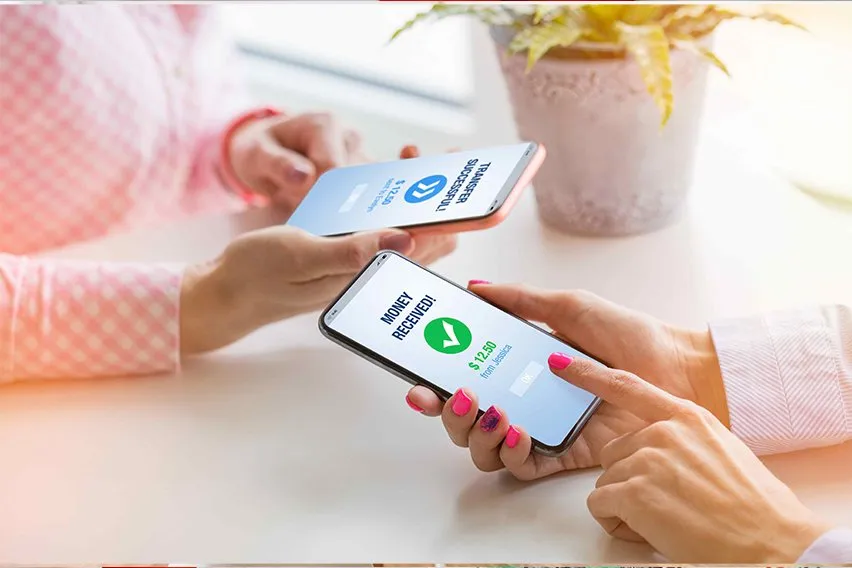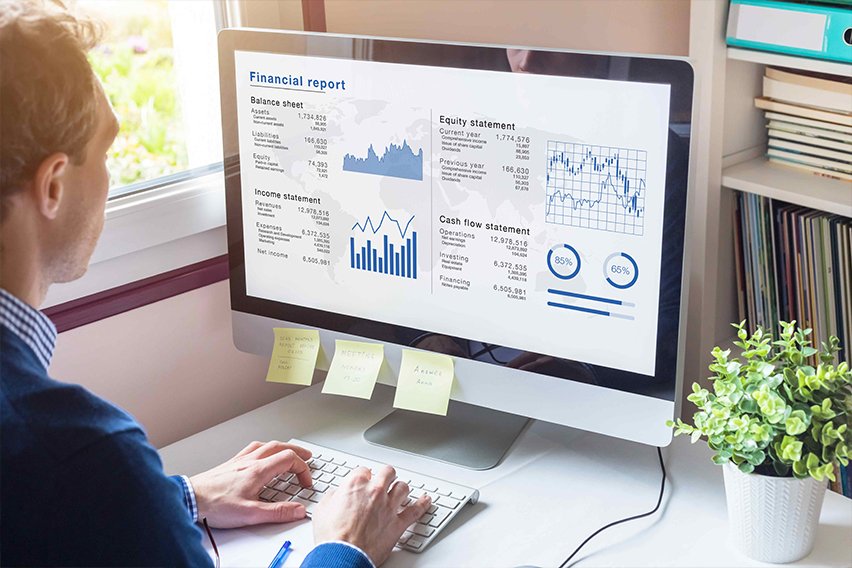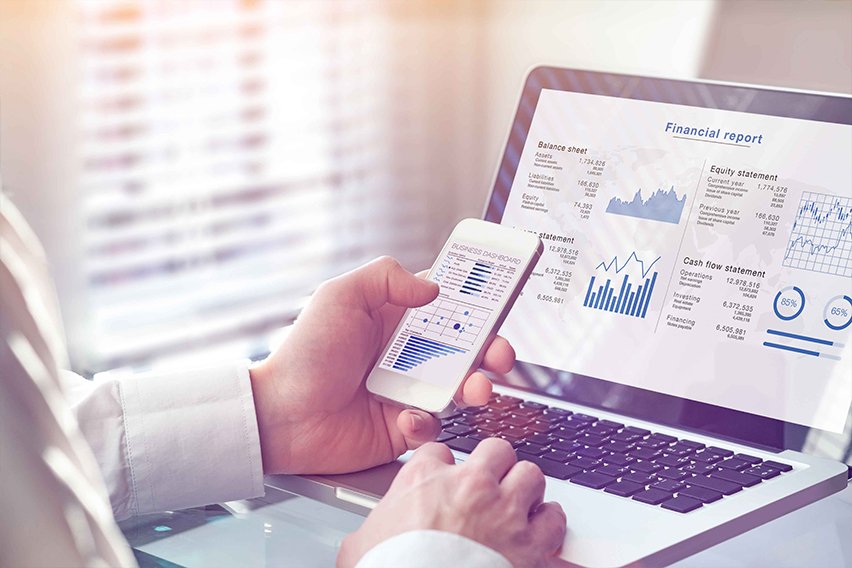How Cash App Works? A Guide on Sending & Receiving Money

If you’re looking for a fast and simple way to send and receive money, Cash App has you covered. Cash App gives you the ability to make instant transactions when exchanging money for you or your business.
Learn all the features and benefits of the peer payment app, how to create an account and start making payments.
Here’s What We’ll Cover:
Sending and Receiving Payments with Cash App
Helpful Tips for Using Cash App
More Resources for Business Owners
What is a Cash App?
Cash App is a money transfer service that allows users to send and receive money from friends and family.
You may be familiar with Cash App already, formerly known as ‘Square Cash’. The peer to peer payment app has been renamed and rebranded with a few new features that make it a great resource for sending, receiving, and requesting funds from family and friends.
Cash App is known to provide fast and efficient peer payments, built-in security, customer support, and a wide range of accessibility.
Signing up for Cash App is a quick and simple process. Once your account is verified, active customers can start receiving Instant transactions and making peer payments.

Who Uses Cash App?
As a user-friendly application that allows for instant deposits and transfers, Cash App is widely used for personal and small-business transactions.
- Use Cash App when going out with friends or family and splitting a meal, make an instant transfer to square up on the bill
- Use Cash App when selling household items or used goods
- Create an account and connect direct deposit to receive your paycheck to your Cash App account
- If you have a Cash App debit card, you can withdrawal up to $250 cash at an ATM
- You must be 18 years or older to open an account.
- As of now, U.S. users can make transactions with U.S.-based recipients only.
Cash App Features
Cash App users have access to features that are designed to insure fast and simple transactions.
Send, receive and request money from people that you know and trust, connect your bank account for Instant Deposit, and access the Cash App debit card to use at ATM’s.
Active customers signed up with the app have access to many resourceful features:
- Use the app to send, receive and request money from friends and family
- New users can send up to $250 within a 7 day period and receive up to $1000 within a 30-day period– once your information is updated and your account is verified, those limitations are lifted
- Users with the Cash App debit card can withdrawal up to $250 from ATM’s, and request cash back with eligible transactions
- Sending, receiving and requesting money is free of charge
- Opt for Instant Deposits to your bank account (1-3 days)
- For added security, set up a PIN or fingerprint ID to access your Cash App account
- Set transaction alerts and receive notifications on activity in your account
Other features that make Cash App great for investing:
- Make Bitcoin exchanges
- Connect a bank account for Instant Deposit
- Receive payments via direct deposit
- Earn rewards
- Add recurring funds to your own account
Limitations and Fees
Like any peer payment app, there are some limitations and fees to be aware of:
- Transaction Limits: New users have 30-day transaction limits set to weed out fraudulent accounts
- Delays: Direct Deposits can take 1-3 days and come with a 1.5 % transaction fee. Adding or depositing money to your Cash App account can take up to 1-3 business days
- Losing Money: If you send money to the wrong person or account, the money could be gone permanently
- No Phone Support: You can access customer support via the App or email but you cannot reach them by phone or physically.
- Security: Cash App is not a public platform, which means your transactions will not be publicly shared. However, users are recommended to take added security measures by keeping transactions within their known community (family and friends) and people that they trust.
Note: If you notice an unauthorized transaction on your account, contact customer support. Cash App allows instant cancelation of most transactions. Set transaction alerts and use security measures to insure safe and authorized transactions.
How to Sign up with Cash App
With just a few initial steps, signing up with Cash App is easy.
Here’s how to create your account and make your first payment:
- Download Cash App to your smartphone
- Enter a phone number or email login ID to get started
- Choose your preferred method to receive verification codes from Cash App (you will be sent a code to verify your account)
- Enter the code that was sent to you to verify your account
- Set up your account by adding your bank account information, debit card number and name as it appears on your card (Cash App does not accept credit cards)
- Choose a $Cashtag- your unique Cash App user name (must include 1 letter and a maximum of 20 characters)
Once you’ve created your account you can begin receiving and sending payments, updating your information, and view transaction history.
Keep in mind that new user accounts are subject to transaction limitations until the account has been fully verified.
Sending and Receiving Payments with Cash App
Before you can start sending money in the app, you must first set up your debit card or link your bank account. To load money into the app, tap the Banking tab in the application and state how much cash you’d like to deposit from your linked account.
Sending Payments
How to send a payment:
- Open Cash App on your device
- Enter the amount you’d like to send
- Tap “Pay”
- Enter the email address, $Cashtag, or phone number of the account you want to send the funds to
- State what the payment is for (ie. “dinner” or “concert tickets”)
- Tap “Pay” once more
Cash App payments are instant so it’s important to ensure that all the information is correct– especially verifying the account that you’re sending the funds to. You will receive a notification once your payment is completed.
Tracking and Receiving Payments
Track your payments and recent transactions in your transaction history, and check your Cash App balance for changes.
Receiving payments from others is instant. You will receive a notification upon receiving payment from an account, and those funds will be immediately available. You can keep the funds in your Cash App account or deposit them into your linked bank account. For a detailed process of receiving money, follow our guide on how to accept money on Cash App.

Helpful Tips for Using Cash App
Once you’ve signed up for Cash App and your account has been verified, you can start making payments, view transaction history, manage your account, and much more.
- Link your personal bank account and set up Direct Deposit to receive instant payments to your account
- Set up a PIN or fingerprint ID for added security when signing into your Cash App account on your smartphone
- Access your Cash App balance and transaction history and cancel accidental or unauthorized transactions
- Use Cash App to better invest by watching market activity and making bitcoin exchanges
- Receive notifications on transactions and set automatic payment reminders
- Sign up for the Cash App debit card to get cash from ATMs, receive cash back from purchases, and access exclusive rewards
- Cash App is available as a downloadable app on your smartphone. Access your Cash App anywhere by logging in on your phone or on a computer.
- You can send, receive, and request money when using the Cash App on a computer, but most users prefer the all-inclusive phone app.
Cash App is designed with user convenience in mind. Make fast and simple transactions with friends and family in a safe, easy to use, all-inclusive peer payment service.
More Resources for Business Owners
RELATED ARTICLES

 Accountability vs Responsibility: What’s the Difference?
Accountability vs Responsibility: What’s the Difference? 10 Best Financial Software (Personal and Business) for 2025
10 Best Financial Software (Personal and Business) for 2025 9 Best Account Management Software and Tools
9 Best Account Management Software and Tools What is the Net Cash Flow Formula & How To Calculate It?
What is the Net Cash Flow Formula & How To Calculate It? 7 Free Online Bookkeeping Courses with Certificates in 2025
7 Free Online Bookkeeping Courses with Certificates in 2025 Levered Free Cash Flow (LFCF): Definition & Calculation
Levered Free Cash Flow (LFCF): Definition & Calculation